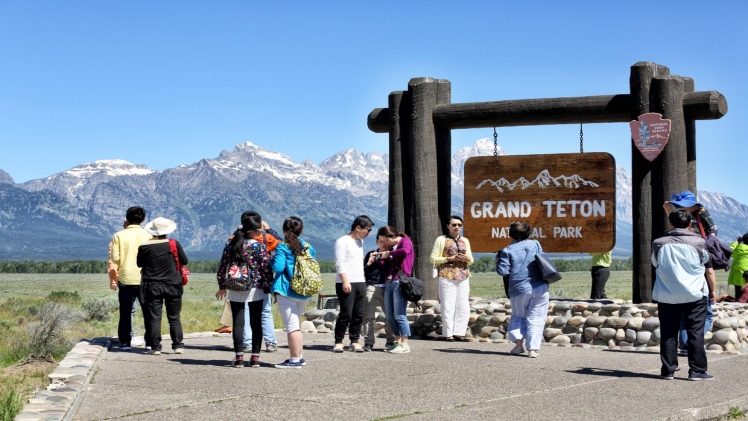Introduction
Travel, a timeless human endeavor, has evolved from a simple means of reaching a destination to a transformative experience that broadens horizons, fosters cultural understanding, and creates lasting memories. In the 21st century, the travel industry is undergoing profound changes, shaped by technological advancements, changing consumer preferences, and global events. This article delves into the multifaceted world of travel, exploring the current trends, challenges, and the enduring magic that makes exploring new destinations a fundamental aspect of the human experience.
Current Trends in Travel
Experiential Travel: Modern travelers are increasingly seeking experiences over possessions. The rise of experiential travel has led to a shift in focus from merely visiting a destination to fully immersing oneself in its culture, history, and local way of life. Travelers now prioritize activities that allow them to connect with the destination on a deeper level, such as culinary experiences, cultural workshops, and interaction with local communities. And for the ultimate blend of adventure and authenticity, many are turning to motorcycle rentals to navigate hidden gems, wind through breathtaking landscapes, and truly feel the pulse of the place they’re exploring. For example, motorcycle rentals in Chicago offer a relaxing ride and stunning scenery along Lake Michigan, making it a perfect destination for a two-wheeled adventure.
Sustainable and Responsible Tourism: With growing environmental awareness, there is a notable rise in sustainable and responsible tourism practices. Travelers are becoming more conscious of their impact on the environment and local communities. Eco-friendly accommodations, carbon offset programs, and community-based tourism initiatives are gaining popularity, allowing travelers to minimize their ecological footprint and contribute positively to the places they visit.
Digital Transformation: Technology has revolutionized the way we plan, book, and experience travel. From mobile apps that offer real-time navigation to platforms that connect travelers with local guides, the digital transformation of the travel industry has made the journey more convenient and personalized. Social media platforms play a significant role in shaping travel trends, inspiring wanderlust and influencing destination choices.
Challenges in the Travel Industry
Pandemic Impact: The global travel industry faced unprecedented challenges with the onset of the COVID-19 pandemic. Travel restrictions, lockdowns, and health concerns significantly disrupted travel plans worldwide. The industry is navigating the complexities of recovery, with a renewed focus on health and safety protocols, flexible booking options, and innovative solutions to rebuild traveler confidence.
Overtourism: While travel brings economic benefits to destinations, the concept of overtourism has emerged as a significant challenge. Popular tourist destinations are grappling with the negative impacts of large crowds, including environmental degradation, strain on local infrastructure, and cultural commodification. Sustainable tourism practices and destination management strategies are crucial to address these challenges and ensure the long-term viability of popular travel spots.
Climate Change Awareness: The travel industry is increasingly acknowledging its role in contributing to climate change. Flights, accommodations, and other travel-related activities contribute to carbon emissions. Travelers, as well as industry stakeholders, are recognizing the need for more sustainable travel options, including the development of eco-friendly transportation, accommodations, and activities.
The Enduring Magic of Travel
Cultural Exchange and Understanding: Travel serves as a powerful tool for cultural exchange and understanding. Experiencing different cultures firsthand fosters empathy, breaks down stereotypes, and promotes a sense of global interconnectedness. It allows individuals to appreciate the diversity of the world and promotes a more inclusive and tolerant society.
Personal Growth and Well-being: Beyond the physical journey, travel offers a journey of self-discovery and personal growth. Stepping out of one’s comfort zone, navigating unfamiliar landscapes, and encountering new perspectives contribute to an individual’s resilience, adaptability, and overall well-being. Travel is not just about the places visited but also about the transformative impact it has on the traveler.
Memories That Last a Lifetime: The essence of travel lies in the creation of memories that last a lifetime. Whether it’s a breathtaking sunset over a serene landscape, the taste of a local delicacy, or the warmth of connections made with fellow travelers, these moments become an integral part of one’s life story. The intangible value of these experiences often surpasses the material aspects of travel.
Conclusion
Travel, in its myriad forms, remains a powerful force that enriches our lives, broadens our perspectives, and connects us to the world. While the travel industry grapples with challenges and adapts to changing dynamics, the fundamental allure of exploration endures. From the rise of experiential and sustainable travel to the transformative power of digital advancements, the journey continues to be an ever-evolving adventure. As we navigate the complexities of the present and look towards the future, the enduring magic of travel persists, inviting us to explore, learn, and create stories that transcend borders and last a lifetime.





